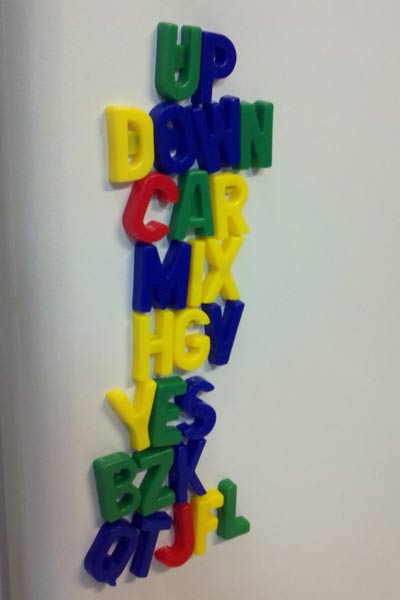Semicolons: A Love Story http://t.co/bB6j33Ee RT @Rogers_Suzanne
http://twitter.com/johawke/status/220011561924837377
http://twitter.com/johawke

Semicolons: A Love Story http://t.co/bB6j33Ee RT @Rogers_Suzanne
http://twitter.com/johawke/status/220011561924837377
http://twitter.com/johawke

I felt so bad about posting this one that I had to cover the name of this church and pastor. Yes, I agree wholeheartedly with the meaning behind this sign. But I think whoever handles the signage needs a grammar checker.


Nestled in the corner of the Big Lots furniture department, I stumbled upon this item: a Special Collector’s Edition Inaugural Lava Lamp!
Wow! Can you believe it? Don’t you wish they were open right the second, so you could drive over and get one all for yourself?!
So, anyway, when I showed it out to Kevin, he wanted to know why it says DRAMA over President Obama’s head.
And I realized that it does, in fact, look like like DRAMA. That one little sliver of a rounded side on thE “O” is the only thing separating OBAMA from DRAMA.
I’d just glanced over those white bubble letters, knowing what they’re meant to say because they’re right over his picture.
Hmmm.
I wonder if it’s really a coincidence or if someone deliberately maneuvered that “O” just enough to make the difference. I guess we’ll never know.

Way to go, Attie! He made what he could and then made do with the rest. Ha! A couple more sets of these magnets, and we’ll be in vocabusiness.
Notice the first two words: UP and DOWN.
Atticus spelled them after I recorded him (at his request) singing an old Jimmy Reed song called, “Baby, What Do You Want Me to Do” in front of the fridge. (You can hear Kevin’s version — better than the original, IMO — at number 11 on the 2/5/2010 Kitchen Concert.)
Here’s the video of Attie:

How can something be progressive and primitive? I’m not sure, but it’s a great example of oxymoron: a contradictory epigram of two (or just a few) words.

I don’t think I’ve ever tasted hollow milk. You?

I’d had this quotation in mind for a long time, but only made a poster of it this past year. It’s what you could call a conversation-starter. And not just with students.
The “witticism” is attributed to Winston Churchill, although there’s a lot of debate over its original form.
“Don’t end a sentence with a preposition” is one of those language rules that we’re taught early on, before we can be trusted with inconsistencies and user discretion. It goes right along with “Don’t start a sentence with ‘because.'” #ugh

The work of an English teacher is never done … until summer (and not even then, if you’re me).